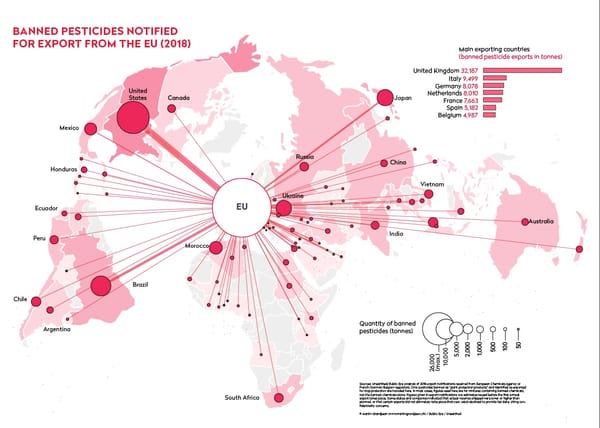Sustainability and profit in business – a trade-off or synergy?
It has been just over 50 years since Milton Friedman famously coined the phrase, “The business of business is business”.

It has been just over 50 years since Milton Friedman famously coined the phrase, “The business of business is business”. Today, this statement no longer holds true. In a world where the devastating effects of climate change, social inequality, ecological degradation, and socio-political instability ensue, perhaps more than ever before, businesses hold immense power to determine the direction in which our society is propelled: to destruction or salvation.
There have been rapid developments in just the last few decades when it comes to businesses tackling humanity’s biggest problems. What initially began as acts of CSR (corporate social responsibility), such as philanthropy, has now led to the rise of companies that live and breathe positive social and environmental impact, like Patagonia, for example. Today, there’s a growing movement of businesses proactively taking a stand on contemporary issues, whether driven by consumers, investors or NGOs.
One company at the forefront of this movement is Unilever. Led by then-CEO Paul Polman, the multinational conglomerate that sells anything from Ben & Jerry’s to Dove soap bars has set itself apart since 2009 by ambitiously walking the walk of putting purpose at the core of its business. Major undertakings such as the Unilever Sustainable Living Plan are just the tip of the iceberg when it comes to the numerous environmental and social commitments made by the company. But as with most things that go against the status quo, this approach to business is not without its critics.
The rise of initiatives like the Taskforce on Climate-change related Financial Disclosures (in which businesses quantify the financial risks they face from climate-change-related risks), or ESG (Environmental, Social, and Governance), has spread like wildfire in the last few years, giving reasons for optimism. Yet the water is still murky when it comes to answering whether putting environmental and social purpose at the centre of a business comes at the cost of business performance. Nothing highlighted this as clearly as the recent news of Terry Smith, one of Unilever’s top shareholders, openly criticising the business.
Triggered by the rejection of Unilever’s bids for the consumer health division of pharmaceutical company GSK, Smith took a stab to highlight the company’s underperforming share prices, blaming it on their focus on purpose. He sarcastically stated in his annual letter to CEOs, “A company which feels it has to define the purpose of Hellmann’s mayonnaise has in our view clearly lost the plot. The Hellmann’s brand has existed since 1913, so we would guess that by now consumers have figured out its purpose (spoiler alert — salads and sandwiches).” Moreover, he stated that “Unilever seems to be labouring under the weight of a management which is obsessed with publicly displaying sustainability credentials at the expense of focusing on the fundamentals of the business.”
Smith’s interpretation of Unilever as a business that has gotten stuck in its own head of a utopian business ecosystem may not be his alone. Public statements like this that have captured the attention of various news outlets, including the Financial Times, may ripple greater scepticism over environmental or social-driven businesses amongst the investor community.
But that same week, another Letter to CEOs echoed the complete opposite. Written by Larry Fink, CEO of BlackRock, this letter was widely picked up by media outlets—perhaps most notably for the fact that it used the word ‘purpose’ as many times as it referred to ‘profit’. Fink stated ‘In this polarised world, CEOs will invariably have one set of stakeholders demanding that we do one thing, while another set of stakeholders demand that we do just the opposite. That is why it is more important than ever that your company and its management be guided by its purpose. If you stay true to your company’s purpose and focus on the long-term, while adapting to this new world around us, you will deliver durable returns for shareholders and help realise the power of capitalism for all.” In this view, companies like Unilever would make a stellar example of a business with purpose. Indeed, Fink went further on to state that “We focus on sustainability not because we’re environmentalists, but because we are capitalists and fiduciaries to our clients.”—highlighting that concern for the environment is not just a nice-to-have element of a business but that it is a necessary component of long-term economic return.
The polarised views displayed by some of the leaders in business highlight just how complex, frustrating, and exciting the role of a business has become. Must a company be driven solely by purpose to generate profit? Or does a firm focusing on purpose do more harm than good if its investors are no longer willing to support their operations? The answer is anything but clear. Only time will tell; or perhaps it is our role as members of society and the workforce to paint the answer.









